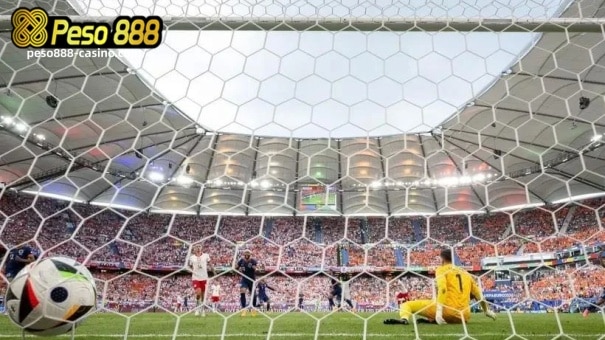Table of Contents
With strong and weak groups polarized, how can backward countries catch up with advanced countries?
Austria has reached the top 16 of the European Cup for the second time in a row, but this time the value is completely different because they defeated France and the Netherlands. Of course, there will still be some people who continue to be harsh, thinking that it is a pity that Ukraine, with all the stars gathered, scored 4 points but was the owner. On the other hand, Austria’s lineup generally only creates surprises through Ralf Rongnick’s high press.
However, Ralf Rongnick has been recognized by the Austrian media as having taken the national team to a new level. What’s more noteworthy is that although people focus on some famous but old players, or absent famous players, most of Austria’s main lineup is players between 23 and 27 years old. In other words, their good performance this year may be just the beginning, and may even pave the way for a more mature World Cup in 2026.
In this European Cup group stage, A very subjective and direct impression is that the gap between the strong groups and the weak groups on the international stage is getting wider and wider, and it is difficult to change.
This observation may conflict with the results in the group stage. For example, England’s hypnotic performance in Group C, France, the strongest group in Group D, only finished second, and the Netherlands was squeezed out of third place. Belgium in Group E Portugal, who managed to get themselves into the group of death and ranked first in Group F early, suffered an upset loss to Georgia.
But in fact, the points lost by the strong teams are basically due to some self-inflicted reasons, and it is by no means solely based on the efforts of the weak teams to achieve an upset. The reason for the growing gap between strength and weakness is the following:
First, strong teams can usually easily review the technical and tactical intentions of weak teams and disrupt their development.
The trend in modern football is the pursuit of control. It is not a Spanish-style pass and control, but an overall offensive and defensive protection system. While attacking with the ball with the most optimistic mentality and assumptions, it also makes the most pessimistic preparations and plans if the ball is accidentally lost, forming a very well-educated system. Protect.
In other words, we must actively control the game in a very safe way. But faced with a very wide promotion door, strong teams usually only make it to the first half of the season and extend the training camp, so we saw a lot of hypnosis games in the group stage.
For a long time, defensive counterattacks have been considered a magic weapon for defeating weak opponents, but the counterattack team always needs to face a problem: in case they encounter a team that is slightly inferior to their own in a game where they must score all 3 points, Is it to remain unchanged and shrink in defense in the face of ever-changing situations? Or press out and hit your opponent?
Ukraine played Romania in the first round. Their media believed that Romania was the worst in the group. As a result, they were beaten 3-0 by the defense. In the second round against Slovakia, Ukraine wanted to use anti-counterattack. In the first half, it was completely passive and fell behind 0-1. In the second half, it went all-out and physically overwhelmed its opponent, and then reversed 2-1. But the goal difference disadvantage left Ukraine with no way to make a comeback.
Second, one person no longer carries the whole team, the barrel theory is the rule
Let’s go back to Austria. Why is this group of players whose worth and qualifications are not so promising, based on their performance in this European Cup, regarded by Austrians as a sign of “stepping up a ladder”? Maybe we can use the barrel theory to explain it.
Many countries have had their own glory in competitive sports, including some current second- and even third-rate countries. In the past years, there have been several superstars. If he has a few good teammates around him, it will be enough to become an international player. The “golden generation” where the game shines brightly.
But now it is no longer just one or two superstars that can support the golden generation. Thanks to the evolution of modern football technology and tactics, a country must be strong when its overall level is raised. In addition to not having obvious shortcomings, it must also There is a barrel hoop called Clear Techniques and Tactics. Second- and third-rate countries can have many wealthy superstars, but this will not easily change their quality, and it will be difficult for them to achieve the same great success in terms of record.
Looking at it this way, it only highlights how valuable Ralf Rongnick and Austria’s success in the group stage was.
He started serving as the director of Red Bull in 2012. In fact, Ralf Rongnick’s contribution goes far beyond Leipzig and Salzburg. The concept of youth training in the Red Bull system quickly spread in all levels of Austrian leagues, not only the top league, but also the Salzburg sub-division. The team Liefering plays in the second division.
Most of the players on the current main roster of the Austrian national team were between the ages of 11 and 15 when Ralf Rongnick became the director of Red Bull in 2012, and they happened to encounter the spread of this wave of tactics. Ralf Rongnick did not build this team in a short period of time after leaving Manchester United. Instead, he planted the saplings and returned to the old place after a few years to harvest them with his own hands.
Of course, it’s no wonder that Ralf Rongnick’s achievements in the Austrian league have been ignored, because almost all the people who shine in the Austrian league are other international stars. Austria seems to have not cultivated its own local superstars in the past 10 years.
In fact, Austrian football has done something that many other countries have not done: rooted advanced football concepts in its own league and youth training. Many opponents who have played against the Austrian team (both the national team and the club) have this feeling: the Austrian team may not necessarily have very strong personal abilities, but it is difficult for this group of people to find out with the support of very simple and effective tactics.
The obvious weakness is to target the attack, and the rhythm of switching between offense and defense is extremely fast. This is the greatest contribution that Ralf Rongnick and the Red Bull system have brought to Austrian football, and it is not a “single-link” contribution, because the two things involved in the offensive and defensive transition are the key to modern football: reading and judging the ball path, and running without the ball. .
Interpreting Ralf Rongnick’s football as “high pressing” may be correct, but it is also a bit one-sided. With the development of modern football today, the team holding the ball generally pays attention to launching an offensive from the backcourt and using a large number of short passes forward, and does not throw the ball aimlessly with big feet; while the team without the ball starts from the opponent’s back line and either presses or presses to disrupt it. Its path of release.
High pressing is something that almost all teams in the modern era must do, but the team that can do this well is not a mad dog like Marcelo Bielsa at Leeds United (although a mad dog bites people, yes) but first of all Good at reading the opponent’s offense and then executing interference.
In this regard, France taught Austria a lesson in the first round of the group. Only France made a difference against Austria and won, even though it also suffered huge personnel losses. Austrian players can follow the textbook and repeatedly contain the French ball carrier and force him to the sideline or corner. In most cases, this is enough, but France can always get the ball out of danger through personal ability. After being taught a lesson by France, and then Poland and the Netherlands, two opponents that were not as good as France, Austria’s frequency of destroying the opponent’s ball path increased significantly.














